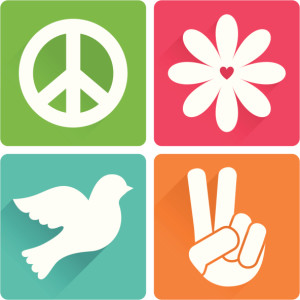
On November 16, 1995, the Member States of the United Nations Educational, Scientific and Cultural Organization (UNESCO) adopted their Declaration of Principles on Tolerance. Since that day, they’ve taken one day annually to generate awareness of tolerance and the dangers of intolerance. Stand with them to promote respect and appreciation of the world’s cultures.
UNESCO has 195 member states and nine associate members whose goals are:
- Contribute to peace building
- Sustainable development
- Eradicate poverty
- Intercultural dialogue
- Attain quality education for everyone
- Address social challenges
- Create cultural diversity
- Build knowledge
How UNESCO Defines Tolerance
UNESCO defines tolerance as respect and acceptance of the diversity of all cultures around the world. It isn’t condescension or indulgence, but an attitude of recognition of the fundamental human rights of all. It’s the responsibility of all, at individual and state levels, as well as international. All humans have the right to live in peace, without having the views of others forced upon them.
Tolerance is vital for peace. Peace is instrumental in development. Thus, in order for society to keep moving forward, tolerance has to be at the heart of the matter. UNESCO is committed to promoting tolerance through awareness and education.
The UN’s Suggestions for Fighting Intolerance
- Combatting intolerance requires the law. People cannot be allowed to settle disputes with violence. States must enforce human rights laws.
- Education is one of the steps that must be taken to fight intolerance. Prejudice and biased attitudes are often based in ignorance and misunderstanding between individuals or cultures.
- Creating tolerance requires freedom to information.
- Those who are fighting for tolerance need individual awareness.
- Although the problem is global, the solution is local.
Ideas for International Day of Tolerance
It may be late to really rally and organize a community event this year in honor of this day, but you can create a dialogue. Although most people think about education only in the schools, UNESCO believes in lifelong learning. Wherever you are, start talking about tolerance and the rights of others in your community.
Find ways to celebrate diversity in your community. Go to a new restaurant and enjoy food from another culture. Enjoy an evening out exploring music or dance that is unknown to you and your family. Find art that promotes cultural awareness and explore the heritage behind the creation of the piece.
UNESCO recommends identifying where violence comes into your community or school. Maybe your group can offer role-playing opportunities which present different dynamics of tolerance to show others what peaceful coexistence looks like. Debate and dialogue between different religious groups can be valuable in growth against intolerance. Find commonalities and build on those ideas.
Finding Solutions
UNESCO is a global organization which understands that the problem is universal. The solution is not going to come from the top, but from individuals who create change in their own neighborhoods.
Talk to your community leaders about a festival for tolerance in your community. The way to combat intolerance is to educate those around you. Teach your children to respect other’s beliefs. Learn a second language to communicate with those who don’t speak yours.
Study the conflicts of the past and see how they were resolved. November is a month of anniversaries related to World War I and Armistice Day. Study how President Reagan and England’s Prime Minister Thatcher helped to end the Cold War. Learn more about the Nobel Peace Prize winners to see how they contributed to peace within their own communities. Then take it into your circles and find ways to build bridges between those in your world.

